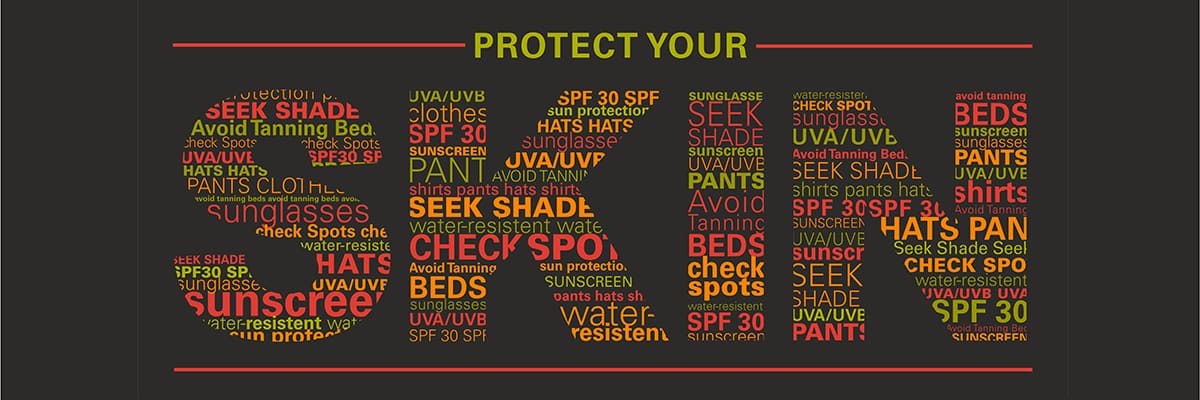
Skin cancer is a malignant growth of cells that are found in the tissues of your skin. Skin cancer is the most common cancer and it is estimated that 1 in 5 people will develop skin cancer at some point in their lives. The risk for having skin cancer can vary based on your family’s history, your skin color, and your exposure to sunlight. There are additional risk factors such as the color of your eyes and hair, past radiation treatments, and more that can increase your chance of having skin cancer at some point in your life. The most preventable risk is to avoid prolonged exposure to the sun.
The treatment your medical provider recommends for your skin cancer will depend on what type of skin cancer you have, your age, the location of the cancer, if it has spread, and even the condition of your skin. Oftentimes skin cancer can be removed in your dermatologist’s office without the use of anesthesia, but through surgical excision. Your dermatologist can apply a numbing cream or an injection of a numbing solution and then remove the cancerous growth with a scalpel, punch biopsy, or even by freezing the area through cryosurgery. Cryosurgery uses liquid nitrogen to freeze the growth, which will eventually fall off of your skin. You may even be presented with the option of Electrosurgery which basically burns the cancerous cells and those cells are then scraped off until no tumor cells remain.
Radiation is another treatment option for some skin cancers. With radiation, there is no need for any cutting or anesthesia. Your doctor may recommend radiation if your skin cancer has spread and/or is too difficult to remove through excision.
Photodynamic therapy uses a drug (via a cream) to make your skin sensitive to light. After the cream is applied, the doctor or dermatologist will use a laser or another type of light to destroy the cancer cells.
Another common option for treating skin cancer treatment is the use of a topical chemotherapy medication. This medication will kill the cancerous cells and attack any surrounding cancerous cells. Actinic keratosis and superficial basal cell carcinomas are most commonly treated using this option.
If you have any area of concern on your skin, do not hesitate to make an appointment to see your dermatologist. Some skin cancers can spread rapidly, disfigure your body, and even cause death. While this is not meant to scare you, it is meant to educate you on the potential dangers of skin cancer.
Disclaimer: This blog provides general information and discussion about medical, cosmetic, mohs, and surgical dermatology. The words and other content provided in this blog, and in any linked materials, are not intended and should not be construed as medical advice. If the reader or any other person has a medical concern, he or she should consult with an appropriately-licensed dermatologist or other health care worker.